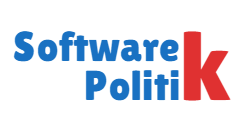In a world where digital and legal frameworks increasingly shape our reality, understanding source code and legal code is not just a technical or legal skill, but a crucial tool for empowerment and full participation in society. Just as learning to read and write opens doors to knowledge, mastering these codes allows us to navigate freely through the rules that govern both the physical and digital worlds. In the article titled “Source code and laws: similarities between the rules that define the digital world and reality“, we explored how both systems share fundamental principles that shape our interaction with our environment. However, this new article focuses on a critical issue: the alarming knowledge gap surrounding these two types of codes among today’s individuals. This gap not only makes it harder to navigate the structures that govern our daily lives, but also perpetuates inequalities in access, power, and opportunities.
In recent decades, we’ve seen increased attention to areas such as emotional management and financial education, both essential skills for personal development. However, this article argues that there are two equally crucial areas that remain largely overlooked: source code and legal code. These disciplines, which invisibly structure both the digital and social worlds, are essential for successfully navigating the complex web that defines any citizen’s daily life.
The lack of knowledge in these areas is not just a technical or academic issue. In many countries, it has become a structural problem, where outdated educational systems have failed to evolve enough to incorporate these essential skills. As a result, a large portion of the population lacks the tools to understand how the rules of the game work, both in the digital and legal realms, leaving them vulnerable in an increasingly automated and regulated world.
A knowledge deficit that breeds inequality
The impact of this knowledge gap on source code and legal code varies depending on the country and social structure. In some societies where education is more geared toward technical or practical skills, access to understanding source code may be higher, but legal knowledge remains a complex topic, often reserved for lawyers and specialists. On the other hand, in countries with more traditional educational systems, neither subject is properly integrated into the curricula, creating a deep knowledge gap that affects the population at various levels.
Not understanding source code, for instance, can lead to a lack of comprehension of the digital systems we use daily, from the apps that manage our finances to the social networks that shape much of our personal and professional relationships. This lack of understanding places us in a position of dependency on those who do understand them, creating inequality in access to opportunities in the workplace, business, and society.
Similarly, ignorance of legal code leaves us vulnerable to institutions and mechanisms that govern our daily lives. Not knowing the laws that affect us in areas such as work, health, property, or personal data protection means relying on others to navigate even the most basic aspects of modern life. This perpetuates a power imbalance, where those who better understand the legal system can exploit those who do not.
Education: a collective and structural solution
The first step in addressing this knowledge gap is recognizing it as a structural problem that must be tackled from the ground up. Current educational systems have not kept pace with technological and social transformations, making it crucial that both source code and legal code be integrated into school curricula from an early age. These subjects should not be seen as specialized knowledge reserved for programmers or lawyers but rather as basic skills that enable citizens to interact more effectively and informed with the world around them.
Moreover, public policy plays a key role in ensuring that these skills reach all segments of the population, regardless of their economic or social status. Countries like Estonia, which have integrated source code studies into their school curricula from the early years of primary education, serve as examples of how nations can bridge this gap and prepare future generations for a more digitalized world.
On the other hand, legal education could be made much more accessible through legal literacy programs, where citizens learn from a young age how laws impact their daily lives and how they can defend themselves against abuses of power. Instead of relying on professionals for every legal aspect of life, citizens should be empowered to understand basic rights and obligations as members of society.
Individual solutions: taking control of our knowledge
While structural solutions are essential, we should not underestimate the role of individual initiative, which is often the most decisive. In a world where information is more accessible than ever, individuals can take charge of their education in both source code and legal code. There are countless online resources, from free programming courses to websites that simply explain the most relevant laws and rights. Taking advantage of these resources can make a significant difference in people’s lives, giving them the tools to understand the world they live in and the rules that shape it.
Additionally, it is crucial to cultivate a mindset of continuous learning. As technology and legal frameworks evolve, so do the tools and challenges we face. It is not just about acquiring knowledge once but about constantly updating our skills. Curiosity and personal commitment to education can be decisive factors in ensuring that each individual maintains control over their digital and social environment, rather than being swept along by the inevitable changes that will continue to occur.
A solid foundation is essential, even if mastery is not required
Today, and especially in the near future, it won’t be necessary to master either source code or legal code entirely. With the advancement of artificial intelligence and automated tools, many of the more complex aspects of these areas will be managed by advanced software. Programming and legal interpretation are becoming increasingly accessible thanks to intuitive platforms that simplify the use of these technologies and knowledge. However, having a solid foundation in both fields remains essential. Understanding the fundamentals of source code and the legal framework allows individuals to make informed decisions, interact effectively with AI, and avoid blindly depending on systems they don’t fully understand.
This base of knowledge will provide the maneuverability to seize opportunities offered by the digital world and protect against potential legal or technological abuses. Those with a basic understanding of source code will be able to recognize the limitations and biases in the tools they use, while legal knowledge will enable them to interpret and question the regulations that govern their daily lives. It’s not about becoming an expert, but about being an informed citizen, capable of critically interacting with an increasingly complex environment.




